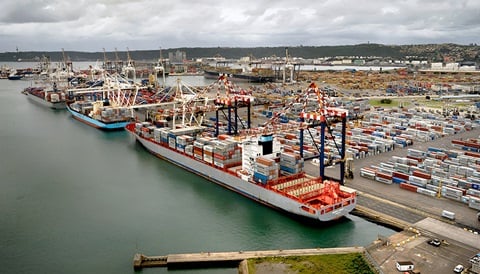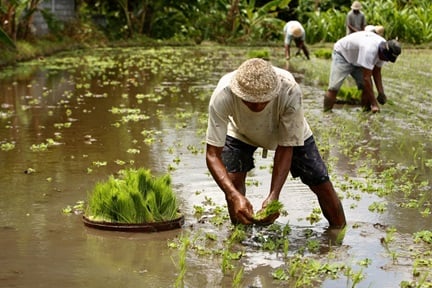Kenyan avocados could soon be for sale in Malaysia
Malaysian import of the Kenyan 'green gold' could open a new market for African fruits in Southeast Asia

After recently gaining access to the Chinese market, Kenyan fresh avocados could soon also be available on supermarket shelves in Malaysia. An audit team from Malaysia visited Kenya in August to carry out a pest-risk analysis on its avocados, as the Southeast Asian country seeks to import both the Hass and Fuerte varieties, sourced from registered and coded orchards.
The Kenya Plant Health Inspectorate Service (KEPHIS) accompanied the Malaysians who inspected farms, packhouses and the Jomo Kenyatta International Airport, Kenya’s main export point for avocados. The objective of the visit was to identify measures put in place by Kenya to mitigate against the pests of concern to Malaysia, including false codling moth, coconut bug, scale insects and fruit fly. If Kenyan growers meet Malaysia’s standards, exports could start in 2023. More Kenyan avocados could also find their way into neighbouring Singapore, which gets 14.7% of its tropical fruit from Malaysia, its second biggest import origin market after Thailand (21.6%). Almost half of Singapore’s avocados currently come from Australia. In 2019, Malaysia and Singapore imported 3,900 and 5,500 tonnes of avocado respectively.
The first ever consignment of Kenyan fresh avocados was exported to China in August. Kenya has been shipping frozen avocados to China since 2019, but it had been denied entry for fresh fruit because growers didn’t meet China’s plant health requirements. While frozen avocados fetch roughly the same prices as fresh varieties, the market is much smaller and limited to food service buyers. Kenya has, however, implemented several measures to ensure its avocados conform to Chinese standards and 15 exporters have since been certified to sell to China.
Kenya is the world’s third largest avocado producer but only a small percentage of its harvest is exported, predominantly to the European Union. Historically, production was controlled by a limited number of packers working with numerous small-scale farmers who often only have a few trees, translating into erratic quality and yields. However, land under commercial cultivation has increased substantially in recent years as companies involved in other crops started planting avocado to diversify their operations. These orchards have professional management, efficient irrigation and are in areas with favourable growing conditions. Commercial exporters include Kakuzi, Vertical Agro, Kenya Horticultural Exporters, Shalimar Fresh and Freshela, which typically cultivate avocados on their own farms and buy from third-party growers. For Kenya’s avocado industry to reach its full potential, the yields and quality of smallholder produce needs to improve through targeted support; new export markets must be opened; lower-quality fruit or waste should be processed into products like avocado oil; and logistics challenges need to be addressed.
References
‘Kenya's avocado sector: Growing fast, but still growing up’, Rabobank, November 2020
‘The Asian-Pacific avocado market peaks near $1.4B’, Global Trade, 22 March 2021
‘Kenya is Africa’s top exporter of avocados, surpassing South Africa’, SABC News, 28 June 2022
‘An ‘avo-lanche’ of avocados – Australia needs to consume and export more avocados as production continues to soar’, Rabobank, 25 July 2022
‘Malaysia, India line up for Kenyan avocado after China’, Business Daily, 26 August 2022
‘First consignment of fresh avocados from Kenya hits Chinese market’, Capital News, 28 August 2022
‘Kenya prepares for avocado exports to Malaysia market’, The Standard, 31 August 2022
‘Tropical fruits in Singapore’, OEC, Accessed 17 September 2022







